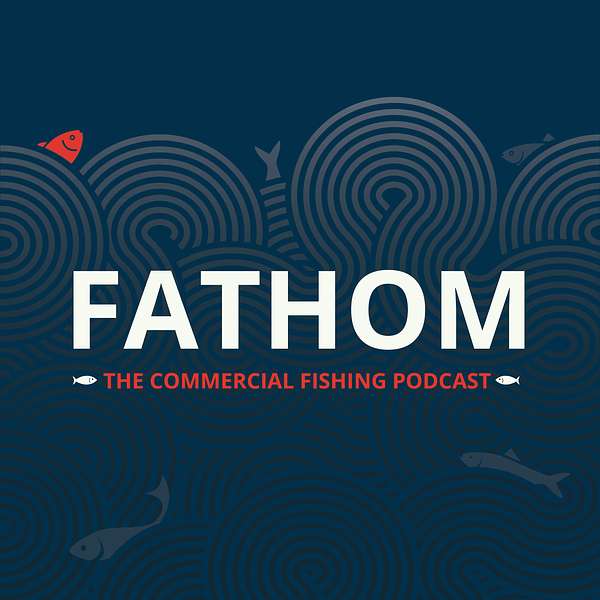
Fathom: getting below the surface of the UK fishing industry.
There is so much more to fishing than just catching fish. Through real conversations with real fishermen, fishing experts and the people who write the rules, we'll help you navigate complex fishing regulations, be more safety-aware, keep up to date on market trends and much more. We'll also be scouring the UK coast for amazing stories from fishing families - connecting you to harbours, boats, and people, around the country. Fathom is brought to you by the Cornish Fish Producers' Organisation and funded by The Seafarers' Charity.
Fathom: getting below the surface of the UK fishing industry.
Spatial Squeeze
The Fathom podcast has partnered with The National Federation of Fishermen's Organisations (NFFO) to produce a series of informative and highly topical episodes, focusing on the challenges and opportunities facing UK fishermen in the post-Brexit landscape.
In our fifth and final episode of the series, NFFO CEO Barrie Deas and CFPO CEO Chris Ranford are joined by a series-record number of guests who include: Nathan de Rozarieux, a fisheries consultant and fisherman operating out of Cornwall, Merlin Jackson, a former inshore fisherman operating from the Thames estuary and currently a fishing liaison to the offshore wind industry and Colin Warwick, retired fisherman and chair of Far and Large Offshore Wind (FLOW). Our panel were on hand to help us explore the issue of spatial squeeze, giving an insight into how marine space has been swallowed up over the past twenty years, the concerning reality of future competition for space and what can be done now to ensure fishing grounds are protected.
“Spatial squeeze” is a concept that has become more prevalent in marine terminology over the past couple of decades. It refers to the increasing competition for space in the seas around our coasts, acknowledging the effect that new infrastructure such as offshore wind farms and marine protected areas are having on ever-shrinking fishing grounds.
The episode was timed with the release of a report by the NFFO. The report sought to reconcile local and regional snapshots of marine projects to date, and show predictions of further developments to create a national picture of spatial squeeze from past to present and how impending plans will see future space used. Barrie kicks things off with the report’s daunting prediction that in the best-case scenario, we will lose a third of our fishing grounds and in the worst, up to a half.
We then hear from Merlin and Colin who provide an overview of how we got here, with Merlin suggesting that the planning and licensing process was set up so that by the time fishing communities received an opportunity to contribute their thoughts or concerns on new offshore wind farms, it was too late to do anything about it. Similarly Colin argues that there isn’t a level playing field with the absence of any statutory requirement to consult fisheries in the same way as other statutory consultees on new marine developments.
Nathan gives us some insights on a project he worked on with energy developers and the Crown Estate, who own virtually all of the seabed in UK waters. This virtual planning exercise sought to explore how coexistence between offshore wind and fishing could work. Nathan’s conclusion was that there was a chasm between what was theoretically and practically possible in terms of fishing inside an offshore wind farm, and the practical difficulties were not being taken into account in the planning process.
The final part of the discussion centred on what the fishing community needed to do to ensure the survival and growth of the industry into the future. Here, there was broad agreement on exerting pressure on the government, the MMO and the Crown Estate to make both a cultural and statutory shift that would give fishermen a seat around the table in marine spatial planning. To do this, our panel agreed that there needed to be a concerted effort from the community to garner support from the public to the same degree as the Brexit campaign, and to build a recognition that food security needed to be taken as seriously as energy security.